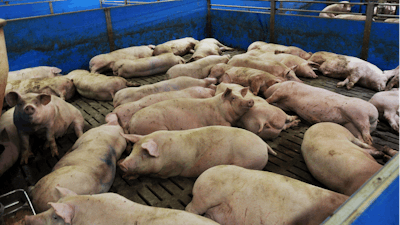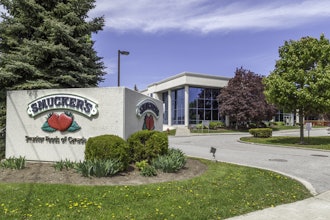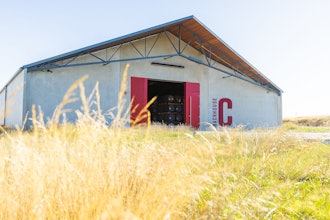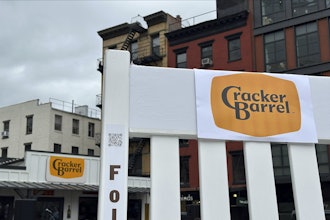
If you are in the business of buying or selling pork-based products, then you have probably heard of California’s Proposition 12.
As it pertains to pork, the law requires that pig confinement systems are large enough to allow the animals to fully lie down, stand up, extend their limbs, and turn around freely. As we previously wrote, the law originally went into effect starting January 1, 2022. And then in late January 2022, a California state court judge issued a “prohibitory writ of mandate” that temporarily stayed public and private enforcement of the law until the California Department of Food and Agriculture (“CDFA”) and California Department of Public Health (“CDPH”) promulgated final regulations. Cal. Hispanic Chambers of Commerce et. al. v. Ross et. al., Case No. 34-2021-80003765 (Superior Court of California, County of Sacramento).
Effective September 1, 2022, CDFA’s Prop 12 regulations were approved by California’s Office of Administrative Law. Here are some key take-aways from these regulations and the ongoing litigation that embroils the law.
Scope of Regulations Adopted
CDFA’s recently adopted regulations are not limited to the pork protections that have been addressed previously. Instead, the regulations address all of the Animal Confinement Law that resulted from the 2018 voter approval of Prop 12.
The Animal Confinement Law requires that covered animals be housed in confinement systems that comply with specific standards for freedom of movement, cage-free design and minimum floor space; and identified covered animals to include veal calves, breeding pigs and egg-laying hens. The California Health and Safety Code sections governing the minimum useable floorspace available to veal calves and for egg-laying hens went into effect on January 1, 2020 – whereas the code sections governing the minimum space made available to breeding pigs went into effect on January 1 of this year (and are now stayed, as discussed herein).
Business owners and operators involved in activities with veal calves and egg-laying hens that are the subject of the Animal Confinement Law should review the new regulations to determine whether they impact their operations, as this article does not directly address these portions of the regulations.
Summary of Certification and Registration Regulations
The regulations on this topic are numerous and impose some detailed documentation obligations on pork industry operators. What follows is a high-level summary of some of the more important regulations impacting business operations. Pork industry operators should take a close look at the full set of regulations to ensure that they can meet the requirements to do business in California.
The regulations pertaining to whole pork meat specify that “No person shall knowingly engage in a commercial sale within the state of whole pork meat for human food if the whole pork meat is the product of a breeding pig, or the product of the immediate offspring of a breeding pig, that was confined at any time during the production cycle for said product” in a non-compliant enclosure. CCR § 1322.1(a).
The regulations continue that, as of January 1, 2024, “any person engaged in business [in California] as a pork producer, or any out-of-state pork producer that is keeping, maintaining, confining, and/or housing [a breeding pig or its offspring] for commercial sale in California,” must hold a valid certification showing that it is a “certified operation”. CCR § 1322.1(b).
A “certified operation” is a production or distribution operation (or portion thereof) that has been certified as using a Prop 12-compliant animal confinement system. CCR § 1326(e). The process for applying for, keeping, complying with, and appealing the denial of, accreditation is the subject of a number of regulations found at CCR § 1326 et seq.
Importantly, pork distributors – as defined in 3CCR § 1322(t) – must also register with CDFA as of January 1, 2023. CCR § 1322.2. Pork distributors cannot sell pork products into or within California without holding a valid registration. Id., at subd. (e). The registration must be renewed every 12 months. Id., at subd. (j). Further, by simply submitting a registration application, the pork distributor agrees to permit CDFA to inspect its facility and business records – in other words, to audit its compliance with Prop 12 – and agrees to permit CDFA to inspect any vehicle conveying whole pork meat into and within the State. CCR § 1322.3 and CCR § 1322.6.
More information regarding registration can be found via the Animal Care Program’s official website (a new program within the Animal Health and Food Safety Services division of the CDFA).
Good Faith Defense
The good faith defense is a critical component of the law, which shields businessowners and operators from enforcement actions if they rely in good faith on “a written certification by the supplier that the … whole pork meat … was not derived from a covered animal who was confined in a cruel manner, or from the immediate offspring of a breeding pig who was confined in a cruel manner.” Cal. Health & Safety Code § 25993.1.
The regulations on this topic are fairly complex for such an otherwise simple concept. Further, they require industry operators to seek and maintain significant documentation.
To avail oneself of the good faith defense, “any written certification from a supplier to a buyer … shall be based upon an audit trail.” CCR § 1322.8. An “audit trail” is defined as “records that are in sufficient detail to document the identification, source, supplier, transfer of ownership, transportation, storage, segregation, handling, packaging, distribution, and sale of whole pork meat that was derived from a breeding pig, or immediate offspring of a breeding pig, confined in compliance with [… Prop 12 …] from pork producers that hold a valid certification as a certified operation ….” CCR § 1322(b).
The regulations also specify the documentation that certain end-user retailers or food processing facilities must have in order to receive the protections of the good faith defense. For end-users who take “physical possession … of whole pork meat at, or directly from, an establishment at which mandatory inspection is provided under the Federal Meat Inspection Act,” and which establishments do not have a valid pork distributor registration, the end-user must:
“(1) Maintain records documenting written certifications that meet the requirements of this section for whole pork meat received during the preceding 12-month period.
(2) Maintain records documenting the address of the location where the retailer or food processor, as the buyer, takes physical possession of whole pork meat for each sales transaction.
(3) Make the records required by this subsection available on-site for inspection by the Department upon request. Electronic records are considered on-site if they are accessible from an on-site location.”
CCR § 1322.8(b).
Prop 12 can be enforced both publicly and privately. Given how active the plaintiffs’ bar is in California, it is advisable that those operators who could benefit from the good faith defense seek to obtain the required paperwork, to gain its protection.
“The Stall”: Litigation Involving Prop 12 Makes Its Future, and Obligations Related to Compliance With Its Provisions, Uncertain
California State Litigation Update:
As noted above, in late January, a California judge issued a “prohibitory writ of mandate” that stayed enforcement of the law (as it pertains to pork products). Cal. Hispanic Chambers of Commerce et. al. v. Ross et. al., Case No. 34-2021-80003765 (Superior Court of California, County of Sacramento). The petitioners had argued that they and their members should not be exposed to an enforcement action under Prop 12 because CDFA and CDPH had not issued final regulations describing the record-keeping and audit trail that would be required to “document the identification, source, supplier, transfer of ownership, transportation, storage, segregation, handling, packaging, distribution, and sale of whole pork that was derived from a breeding pig, or immediate offspring of a breeding pig, confined in compliance with” the law. The court agreed that CDFA and CDPH must promulgate regulations before Prop 12 can be enforced.
The court’s amended final ruling and judgment stayed enforcement of Prop 12 until 180 days after adoption of final regulations. With the finalization of regulations occurring on September 1, 2022, the stay should lift by its own terms in February 2023. (Although we note that the appeal in the Cal. Hispanic Chambers matter is ongoing [see Third Appellate District, Case No. C095799] and also that the federal litigation may impact ultimate compliance obligations.)
Federal Litigation Update:
The National Pork Producers Council (“NPPC”) and the American Farm Bureau Federation (“AFBF”) case before the United States Supreme Court is fully briefed and oral argument occurred on October 11, 2022 (Case No. 21-468). A multitude of amicus briefs were filed on both sides of the issue, including by the United States, the North American Meat Institute, the State of Illinois, and The Humane Society of the United States.
The suit alleges that Proposition 12 violates the Constitution’s Dormant Commerce Clause by placing an undue burden on pork producers nationally. (The Dormant Commerce Clause refers to the Constitutional prohibition against states passing legislation that discriminates against or excessively burdens interstate commerce.) Critics of the law seek to overturn the Ninth Circuit’s unpublished decision in June 2020 upholding a determination that the law is constitutional. Proponents of the law hope that this will be the final straw in a contentious debate.
The United States Supreme Court’s decision here could further impact the future of Proposition 12 and the obligations of the pork industry thereunder.
Takeaways
Until the various legal challenges to Proposition 12 are resolved, the obligations of those who would sell pork products into the state of California remain uncertain. Industry and retailers impacted by the law should continue to watch for developments, as these seem certain to impact their rights.
Further, our first article on this topic identified some “exceptions” to the scope of Proposition 12. These included the good faith defense, and also that the law only applies to “whole pork meat”. Under this definition, once pork is combined, cooked or ground, the law no longer applies. The regulations confirm that this continues to be the case. CCR § 1322(ee).
This article does not cover all aspects of the law. Operators impacted by the law should review both the relevant California Health and Safety Code sections (sections 25990 to 25994) and also the final regulations (linked above).
Abby Meyer is a partner and co-leader of Sheppard Mullin’s Food and Beverage Industry Team. Khirin Bunker is an associate and member of the Food and Beverage Industry Team. They can be reached at [email protected] and [email protected], respectively.






















